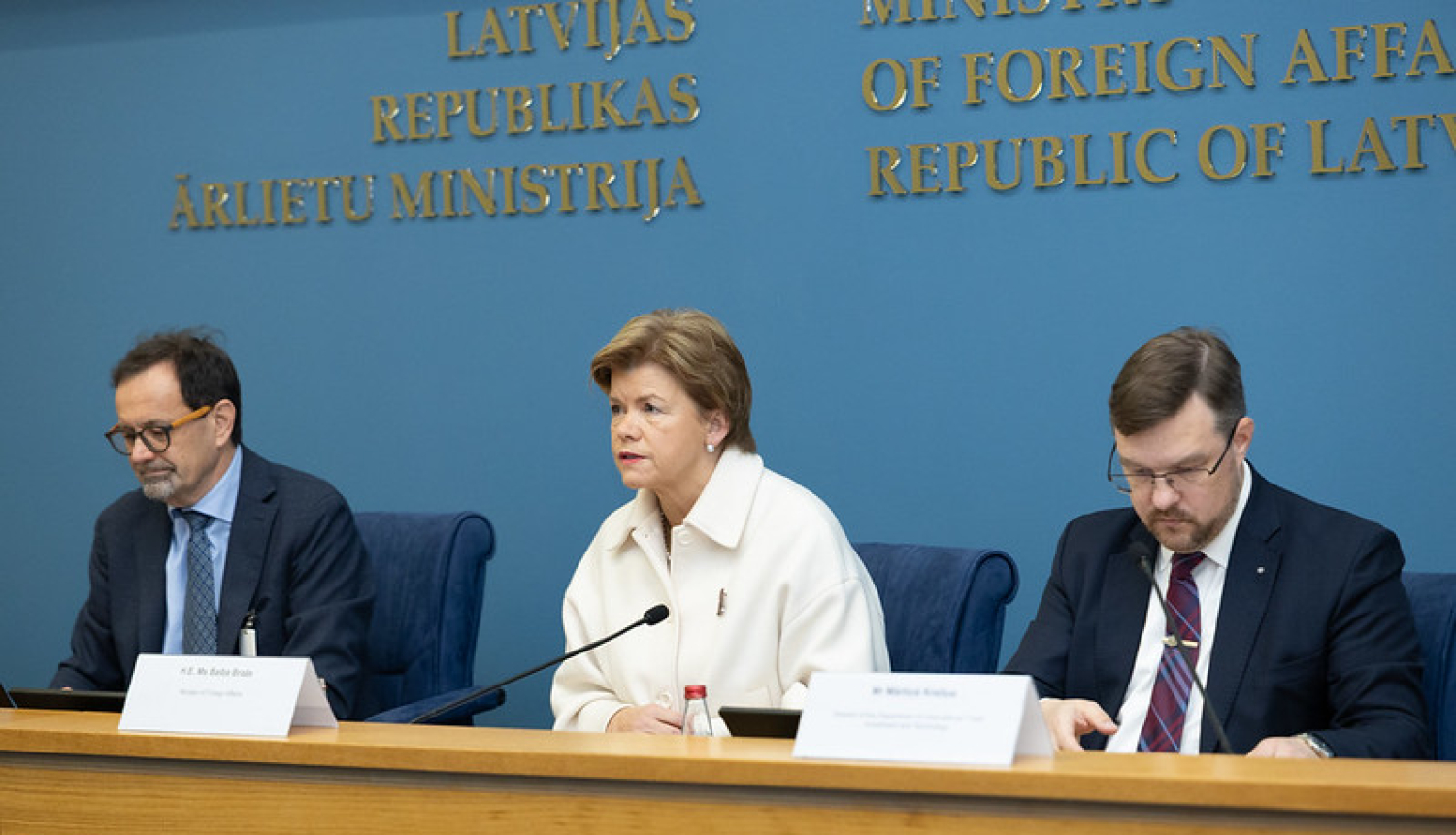On 10 November 2025, the Minister of Foreign Affairs, Baiba Braže, had a discussion with businesses, the organisations representing them, and officials from public authorities discussed opportunities and benefits in relation to the upcoming European Union-Mercosur trade agreement. The seminar was also attended by the negotiator for the Mercosur agreement at the Directorate-General for Trade and Economic Security of the European Commission, Paolo Garzotti. The event was organised by the Ministry of Foreign Affairs and the Latvian Chamber of Commerce.
Minister of Foreign Affairs Baiba Braže:
“The EU-Mercosur agreement is a strategic partnership with the Latin American countries, expected to boost European and Latvian exports to new markets and create new jobs. Once concluded, the EU–Mercosur Agreement will establish the world’s largest free-trade area, covering almost a quarter of global GDP and creating a market of more than 700 million people with a huge economic potential, which will save EU businesses 4 billion euros in customs duties annually.
The entry into the South American market will be facilitated by lowering or completely abolishing customs duties and streamlining customs procedures. For instance, in the EU, the agreement provides for a significant reduction in customs tariffs – up to 20% for machinery, cars and ICT products, and approx. 30% – for dairy products, wines and chocolate.”
Baiba Braže also underlined that over the last two decades, the expansion of the network of EU trade agreements with reliable partners has a demonstrable track of its positive impact. For example, after application of EU Free Trade Agreements, Latvia’s exports increased almost tenfold to Korea (since 2011), by 166% to Canada (since 2017), and by 49% to Japan (since 2019).
Gains for Latvian businesses
- The agreement provides for lower tariffs on Latvia’s key exports – machinery, electrical equipment, wood products, chemicals, pharmaceuticals and food products, as well as simpler customs procedures.
- The agreement will enable Latvian entrepreneurs to participate in global supply chains, cooperating with partners from other EU Member States who already export to the region. Mercosur countries will also open their public procurement markets and reduce barriers in the telecommunications, transport and financial sectors.
- Enhanced digital trade rules will allow Latvia’s IT sector to expand into the Mercosur market. In turn, Latvian companies already operating in the Brazilian market will benefit from the opening of the services sector, the elimination of tariffs on machinery and electronics, among others.
- The agreement includes special solutions for the involvement of small and medium-sized enterprises in trade.
The Foreign Minister also indicated that the Foreign Service will continue using the instruments at its disposal to represent Latvia’s economic interests – supporting entrepreneurs in promoting their visibility, penetrating foreign markets, and attracting foreign investment and partners is one of the Foreign Service’s priorities.
Background information
- On 6 December 2024, after 25 years of negotiations, a political agreement was reached on the conclusion of negotiations for an EU-Mercosur Free Trade Agreement. The agreement is due to be signed by the end of 2025.
- Mercosur (Mercado Común del Sur), or the Southern Common Market, is the leading trading bloc in South America. Its full members are Argentina, Brazil, Uruguay, and Paraguay.
- The EU’s external trade policy is the exclusive responsibility of the EU, with the European Commission drafting trade legislation, negotiating and entering into international trade agreements.
- Key facts and figures about the EU-Mercosur agreement
- EU Common Commercial Policy
- Baiba Braže: the EU must seize every opportunity and use any instrument to reduce Russia’s budget revenues, while protecting EU businesses




